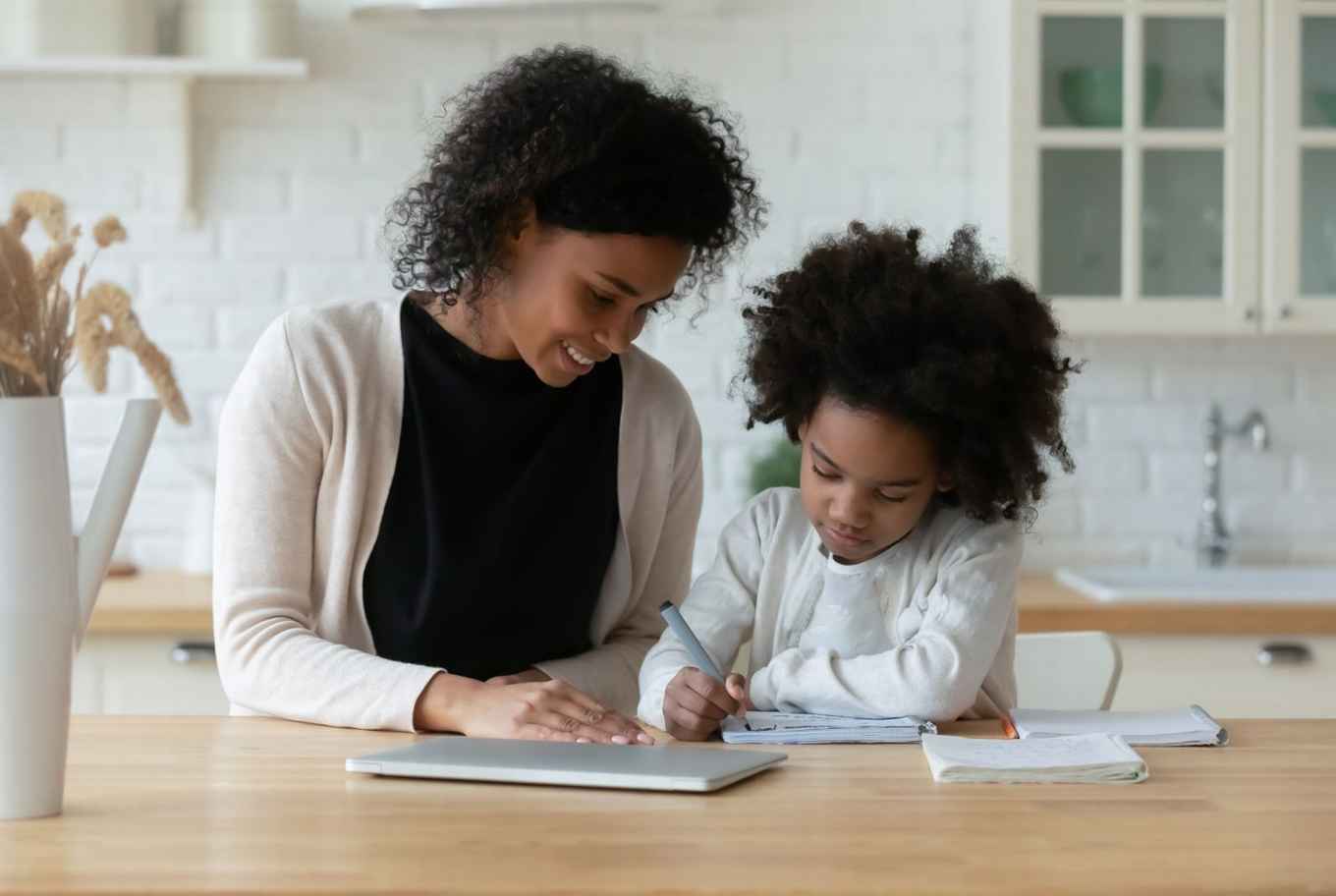Helping with schoolwork: when do parents feel capable of doing this?
2 July 2021

‘During the lockdown, parents were actually similar to novice teachers,’ says educationalist and assistant professor Marjolein Zee. ‘Like a teacher who is just starting out, parents had to learn to deal with stress and conflicting roles: being a supportive parent versus having to be strict when their child lacks motivation. This can obviously have a significant effect on parents’ self-efficacy. A great deal of research has been done on the topic of how novice teachers deal with these challenges. Because of the coronavirus lockdown, we were curious to know what the experience was like for parents who suddenly had to teach their children at home.’
‘Little research has been done in this area,’ adds Peter de Jong, professor of Orthopedagogics (Educational Psychology). ‘In our study, we found a strong correlation between parents' self-efficacy – that is, the feeling that they can effectively support their children with homework – and the amount of conflict they had with their children.’
Looking at the parents, the home situation and the school situation
The researchers specifically wanted to know to what extent parents felt capable of homeschooling, how this was related to conflicts with their children and what factors had an impact in this regard. They examined three sets of factors:
- characteristics of the parents themselves, such as their level of education and level of stress
- the situation at home and how the household was organised. For example, is there a strict schedule? Is the atmosphere quiet and calm or are things often hectic
- the support provided by the school, e.g. information about the subject matter and help with the teaching approach
173 parents participated in the survey
With the help of schools located in a rural area of the Netherlands, a questionnaire was sent out and eventually completed by 173 parents (mainly mothers) of children aged 4 to 7 (kindergarten – second grade). ‘These were parents who understood the homework content, but of course hadn’t been trained in how to explain the material, create a safe environment and motivate their children to do schoolwork,’ de Jong says. The parents provided information about conflicts surrounding schoolwork before and during the school closure. They also reported on their self-efficacy for teaching, the stress they had during the lockdown, the organisation of their household and the support received from their children’s school.
Stress and home situation have the greatest impact
The researchers concluded that parents who felt better able to support their children also reported fewer conflicts with their children. The home situation and school support play a particularly important role in this regard. Parents felt less capable especially when they were dealing with a more chaotic household, more stress, and less support from school, and these feelings of self-efficacy subsequently resulted in more conflict during schoolwork. The researchers had expected that parents’ socio-economic status would also be linked to household organisation, but this relationship turned out to be negligible.
What can schools and parents do with this knowledge?
‘To avoid conflicts with their children, it is important that parents have confidence in their ability to effectively help their children with schoolwork,’ Zee concludes. ‘This involves not only transferring knowledge, but also giving children confidence in their own schoolwork and creating a safe and secure environment. Research on novice teachers shows that schools can support these feelings of self-efficacy through efforts such as offering short instructional videos with examples of how to structure the material and how to deal with resistance, agreeing on clear learning objectives with parents and children and creating opportunities to share experiences. Connecting parents with a specific contact person can help, too.’
‘The home situation also had a strong effect, so parents can play a role in this regard as well,’ De Jong adds. ‘They can look at how the household is organised and try to create more structure. Working with a set schedule helps, for example.’
Report details
Peter F. de Jong, Bieke G. M. Scheurs, and Marjolein Zee (2021), Parent–Child Conflict During Homeschooling in Times of the COVID-19 Pandemic: A key Role for Mothers’ Self-Efficacy in Teaching. Download rapport: https://doi.org/10.31234/osf.io/feuj9
Questions?
For questions about the study and the report, please contact Peter de Jong: P.F.deJong@uva.nl or Marjolein Zee: M.Zee@uva.nl